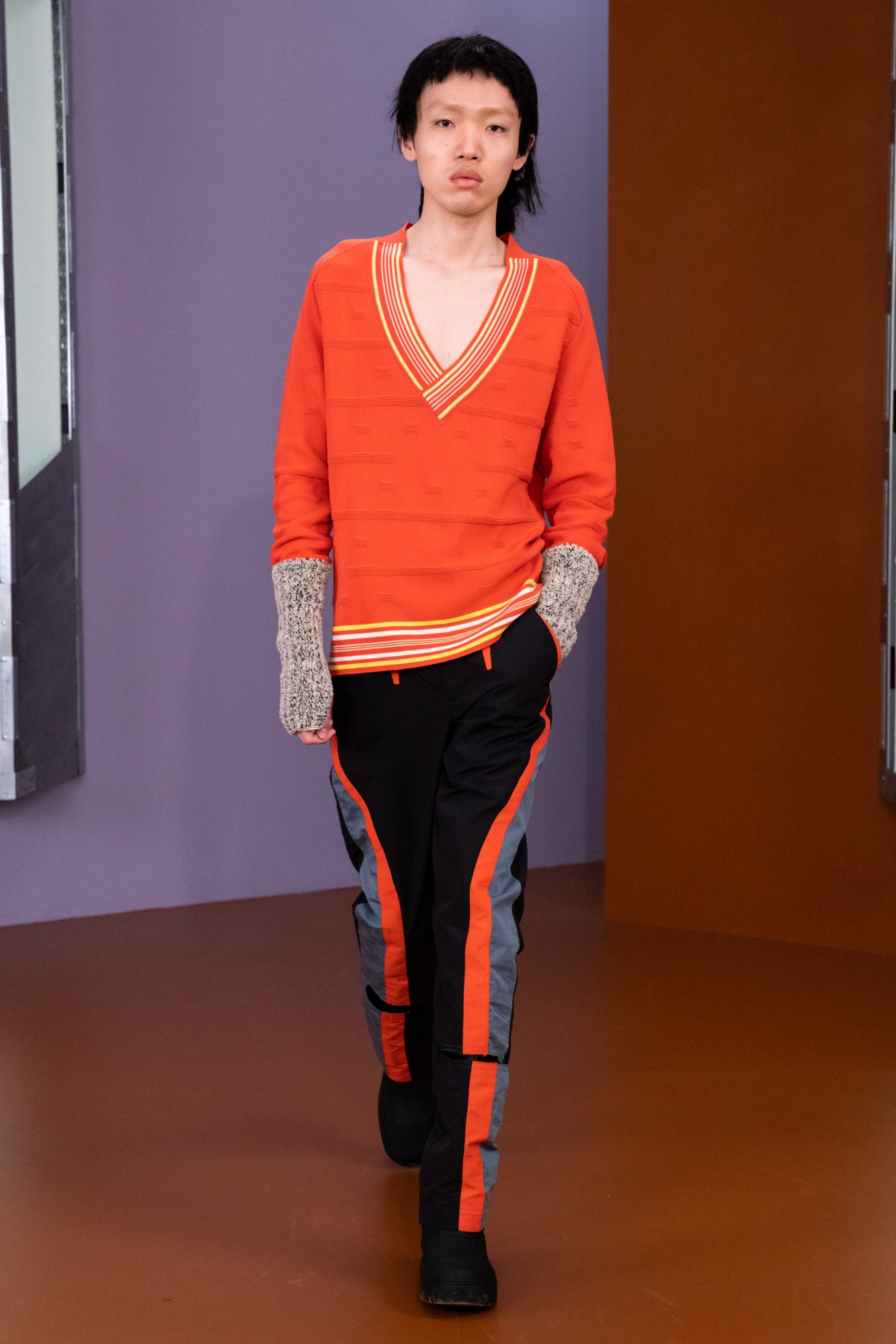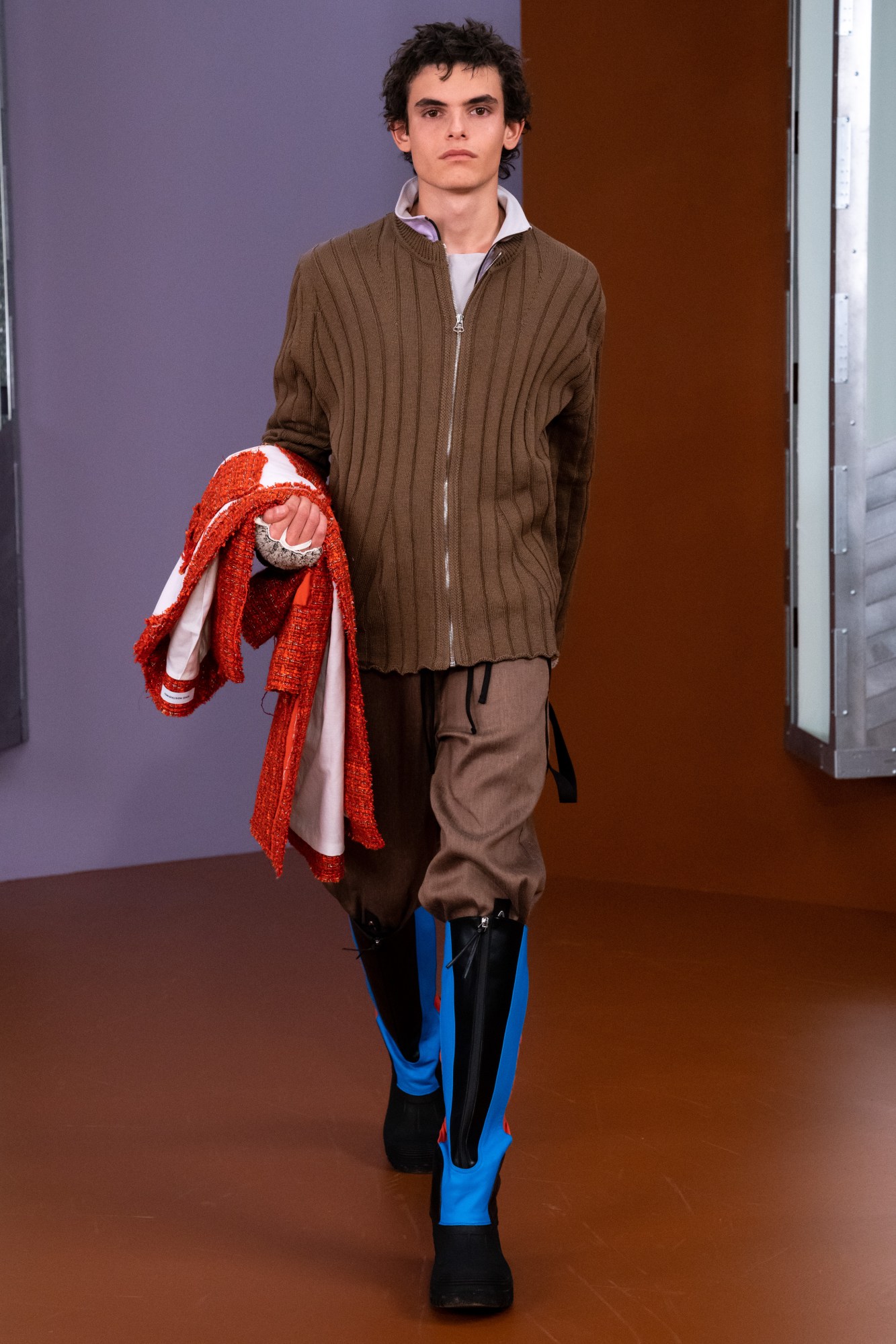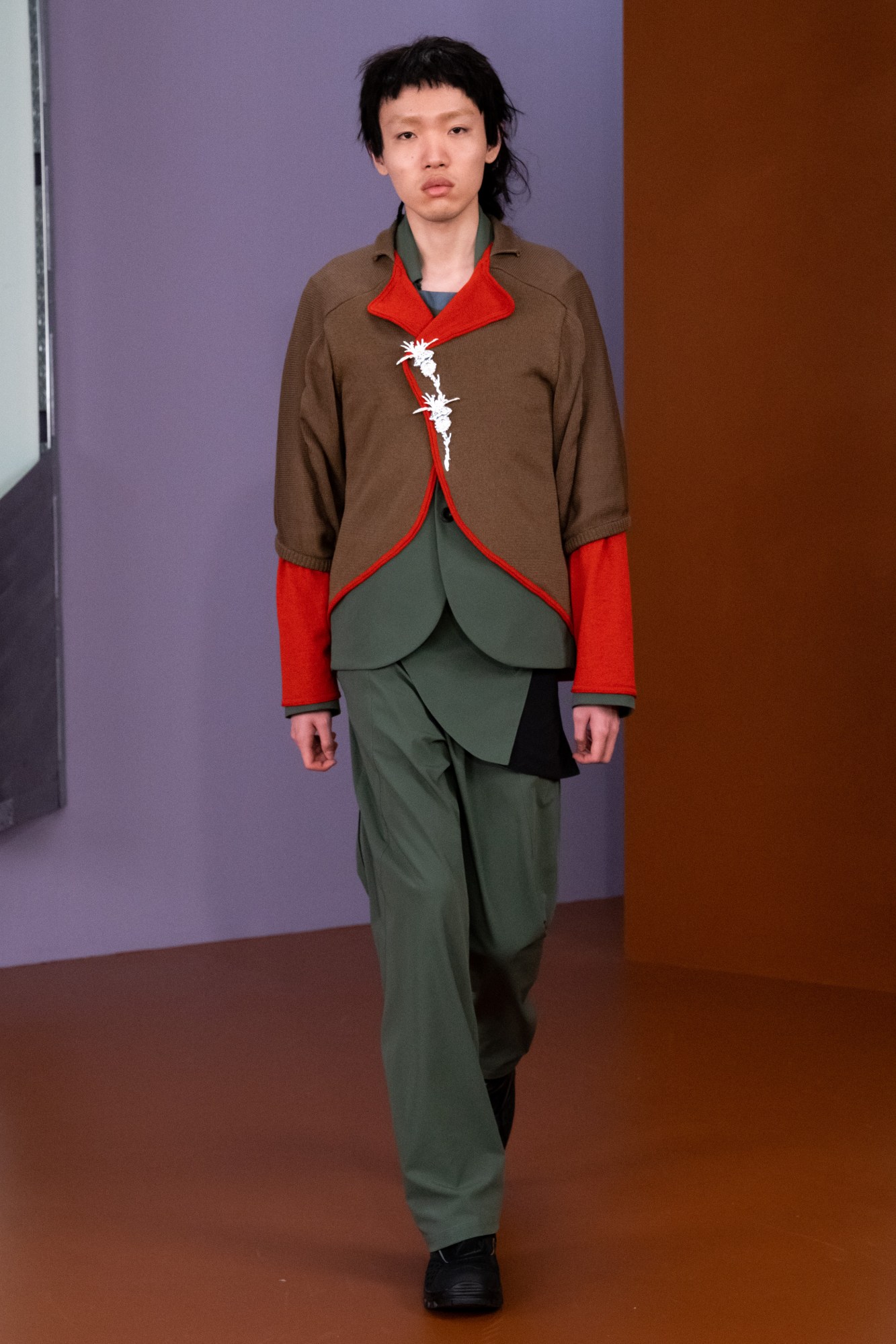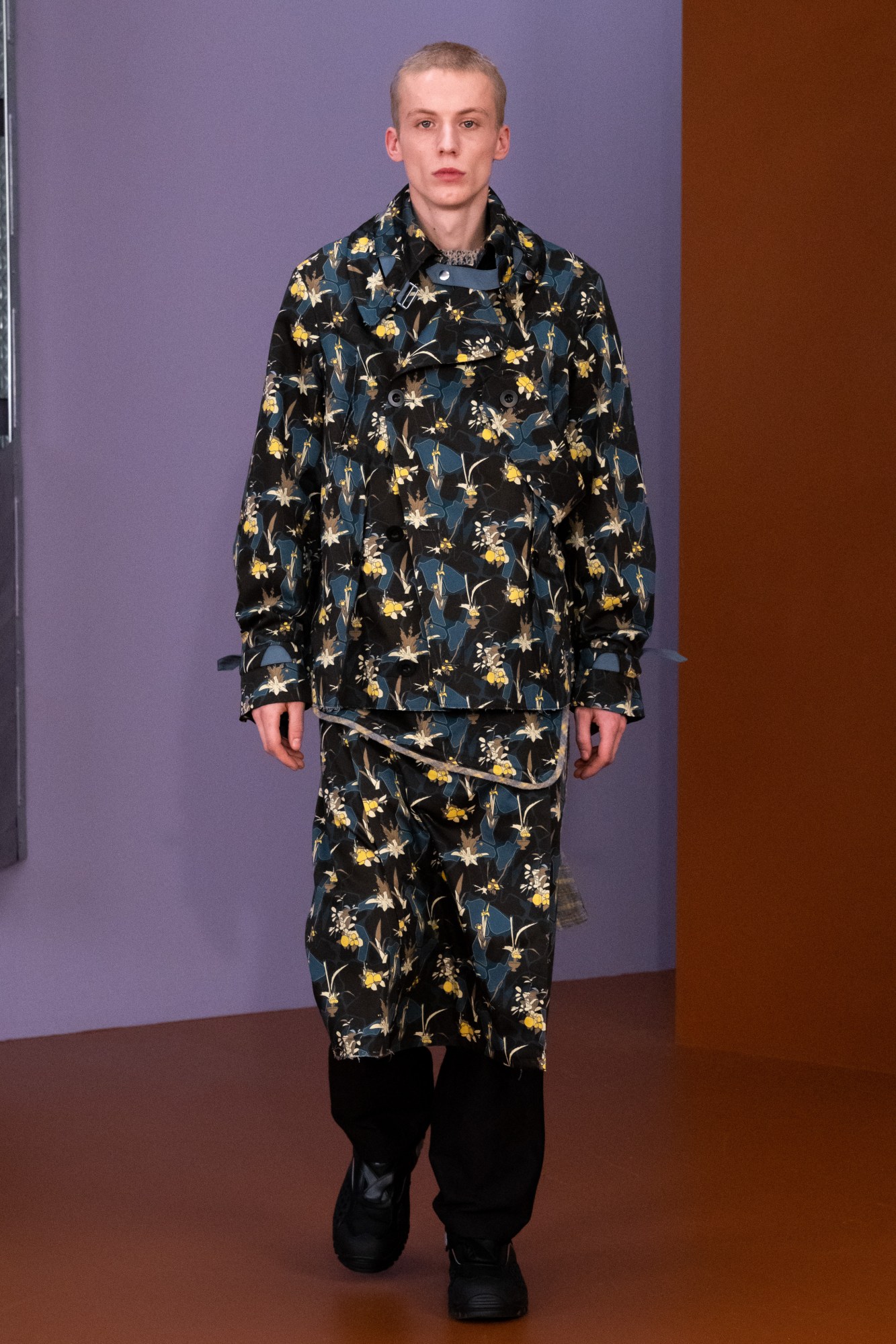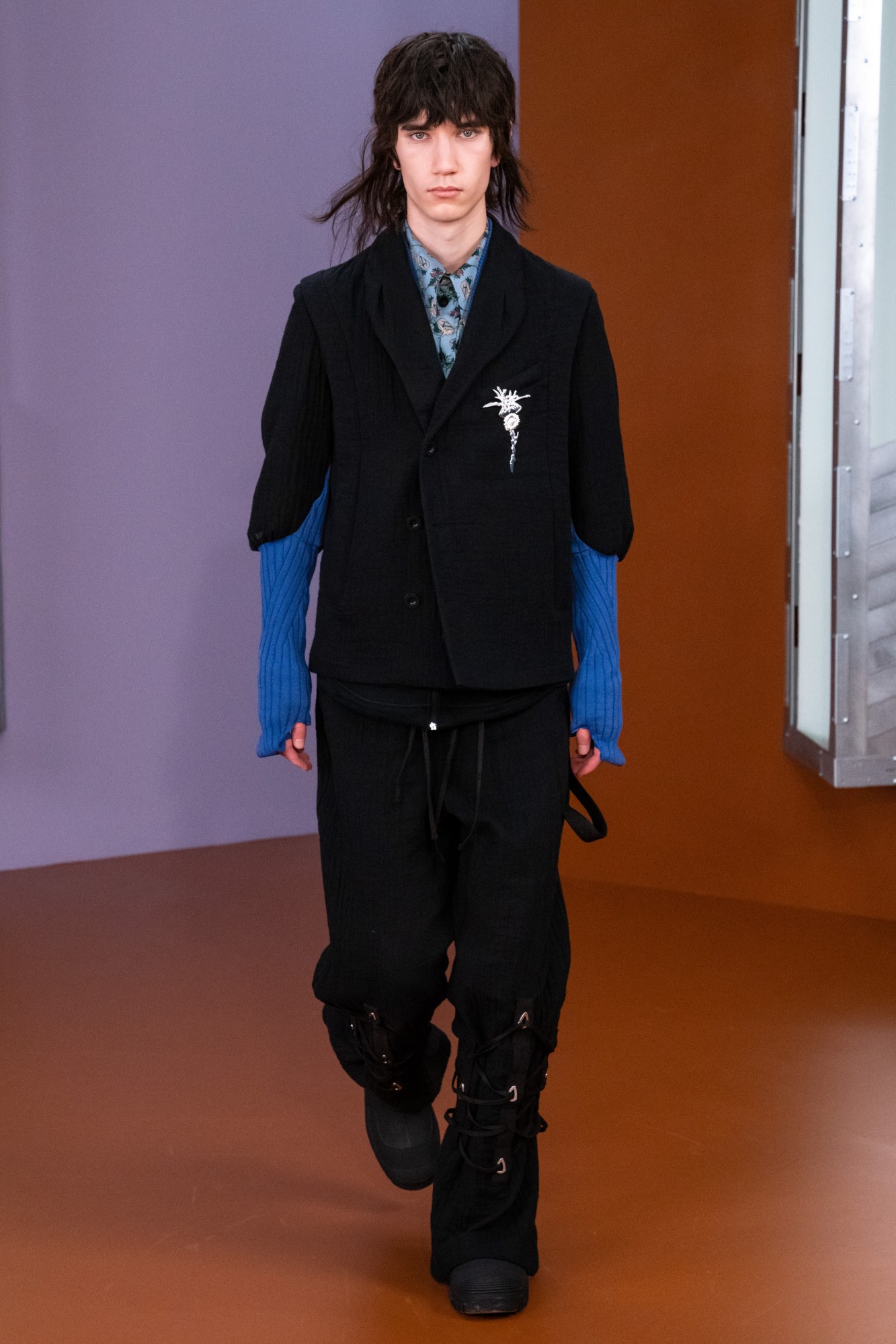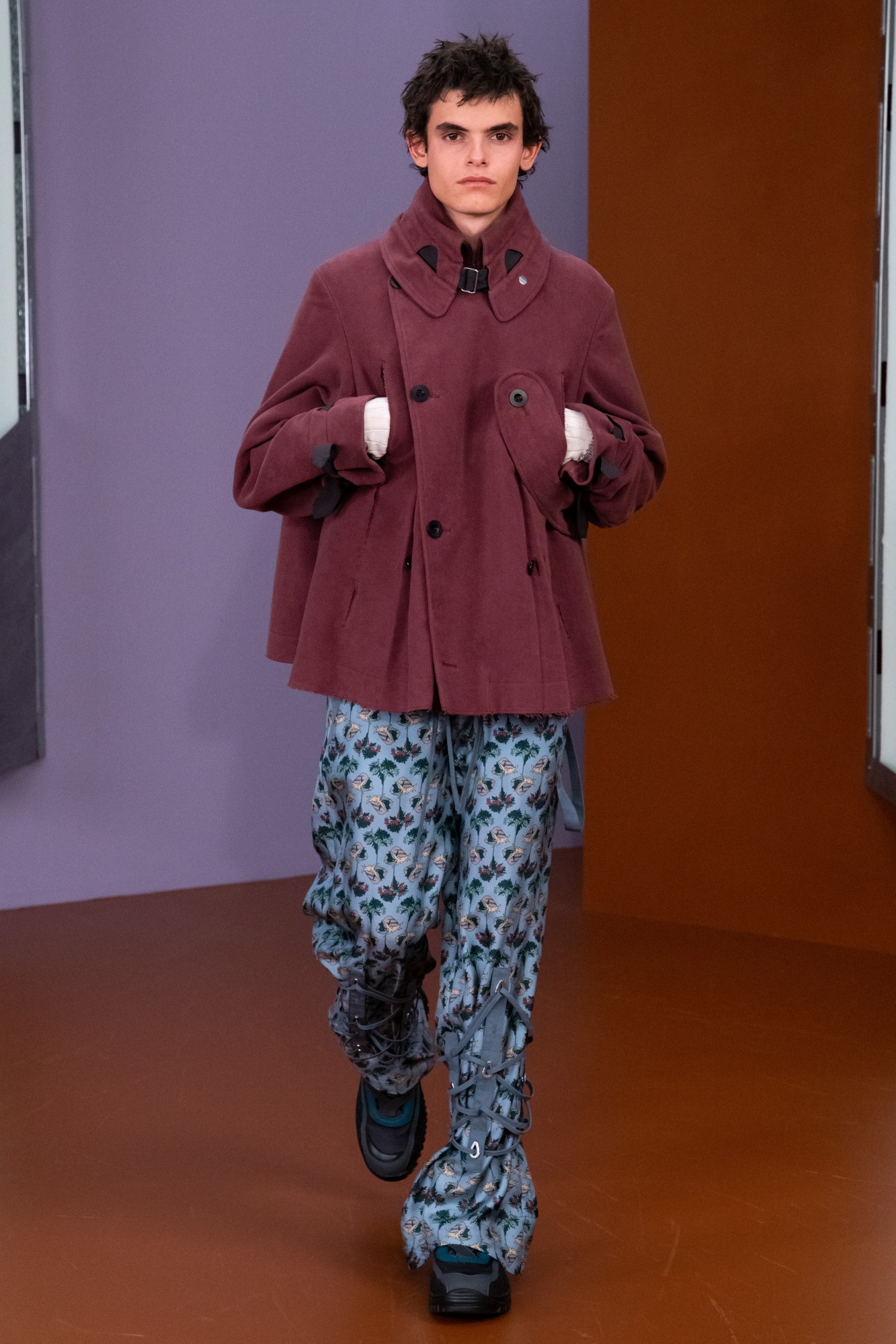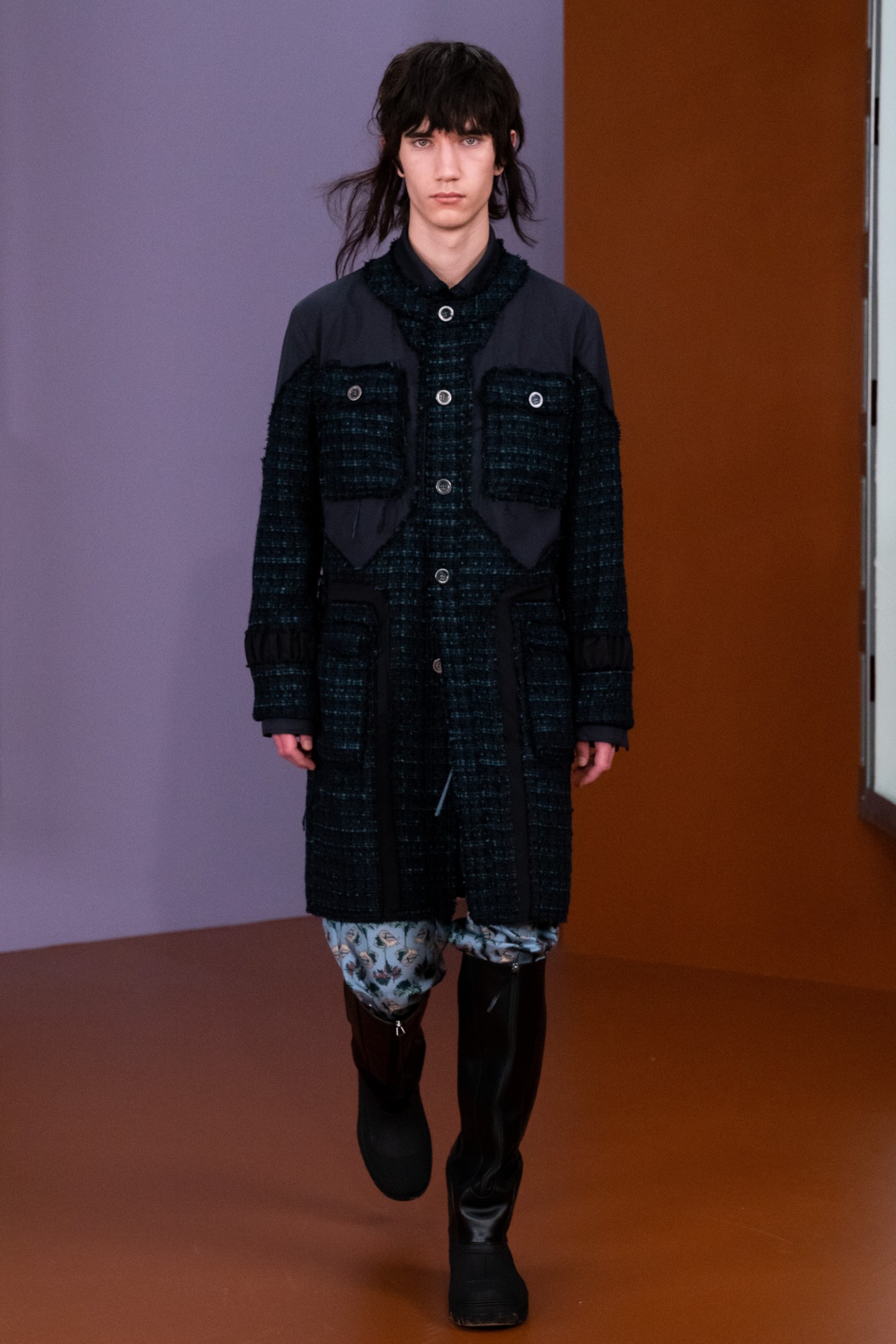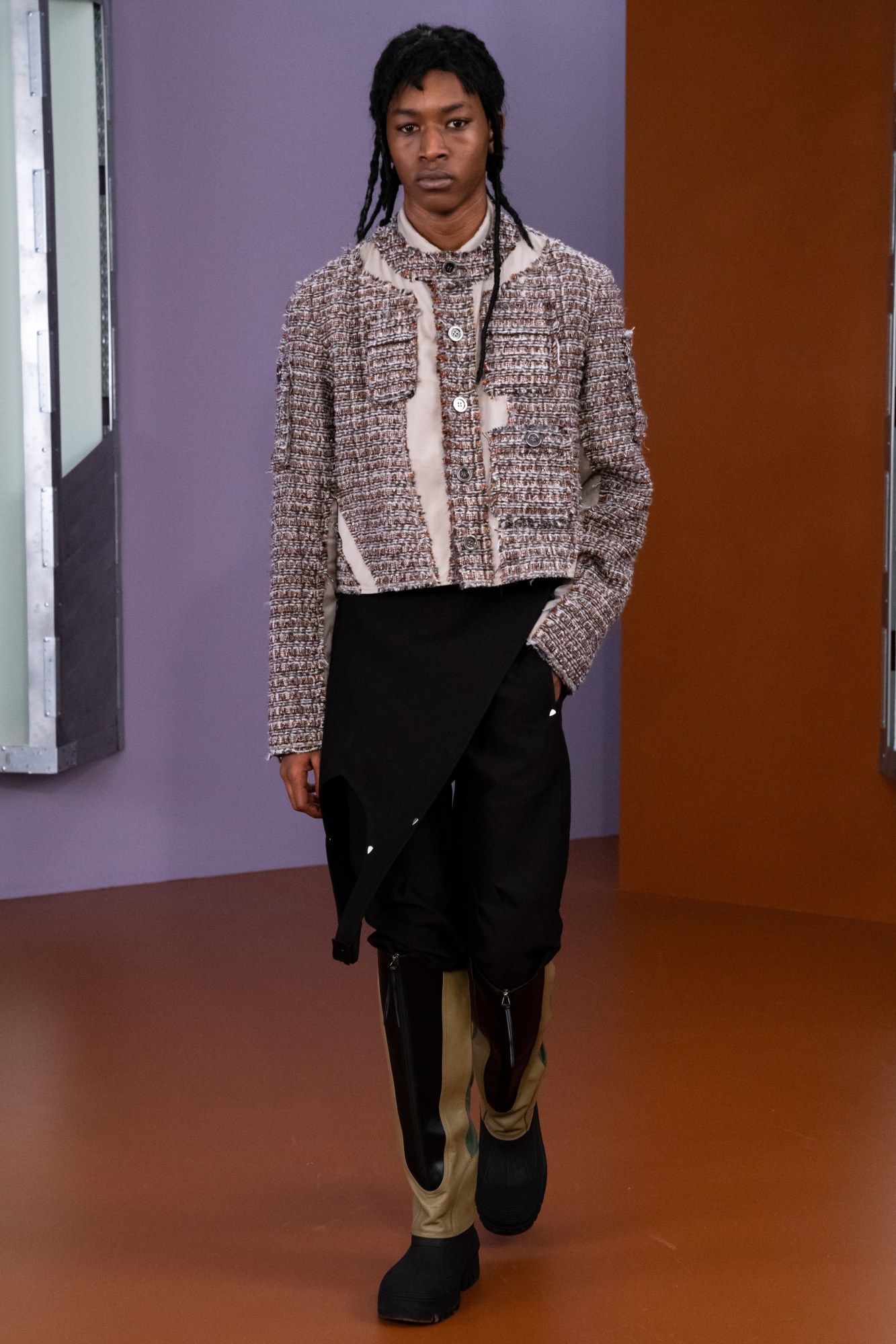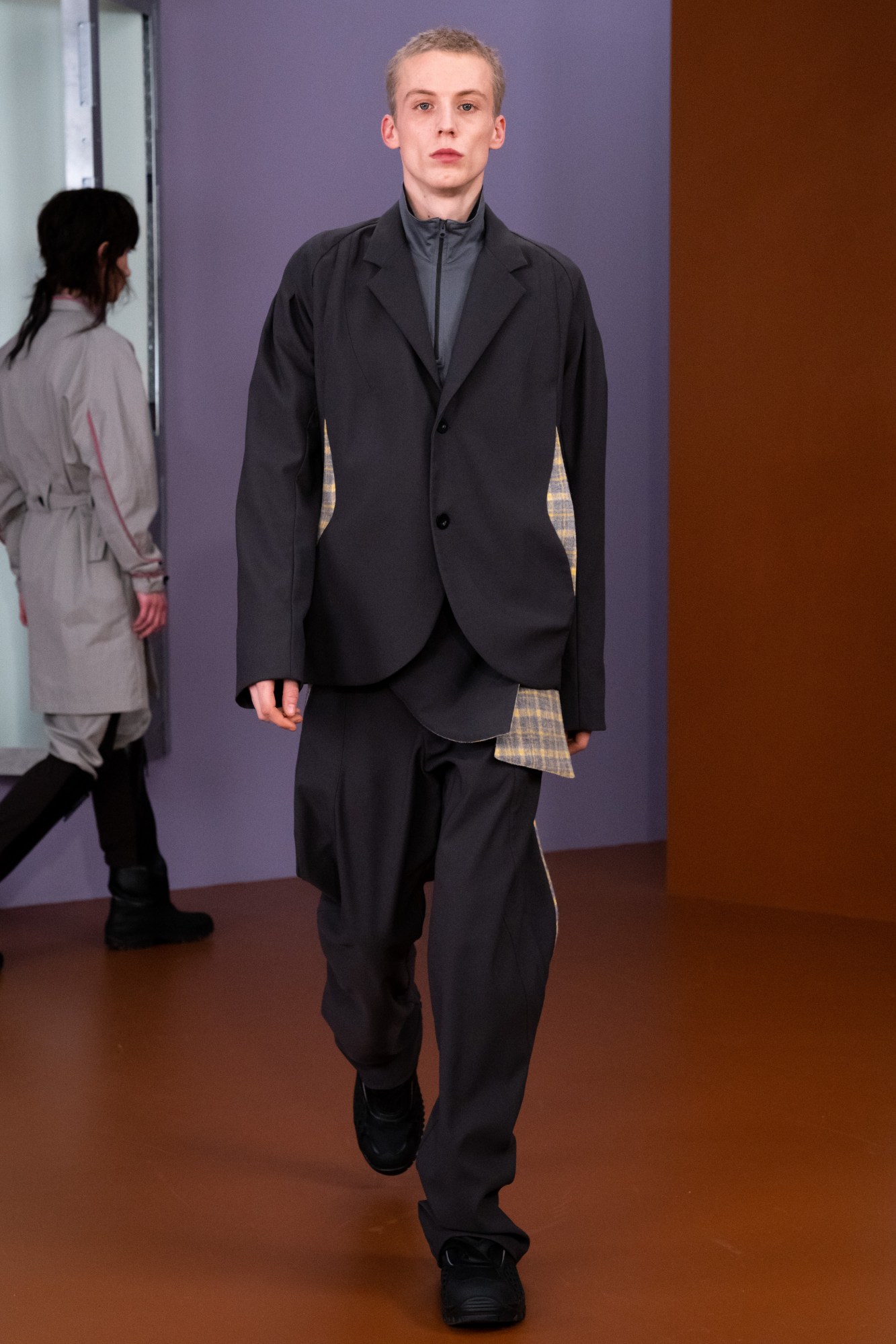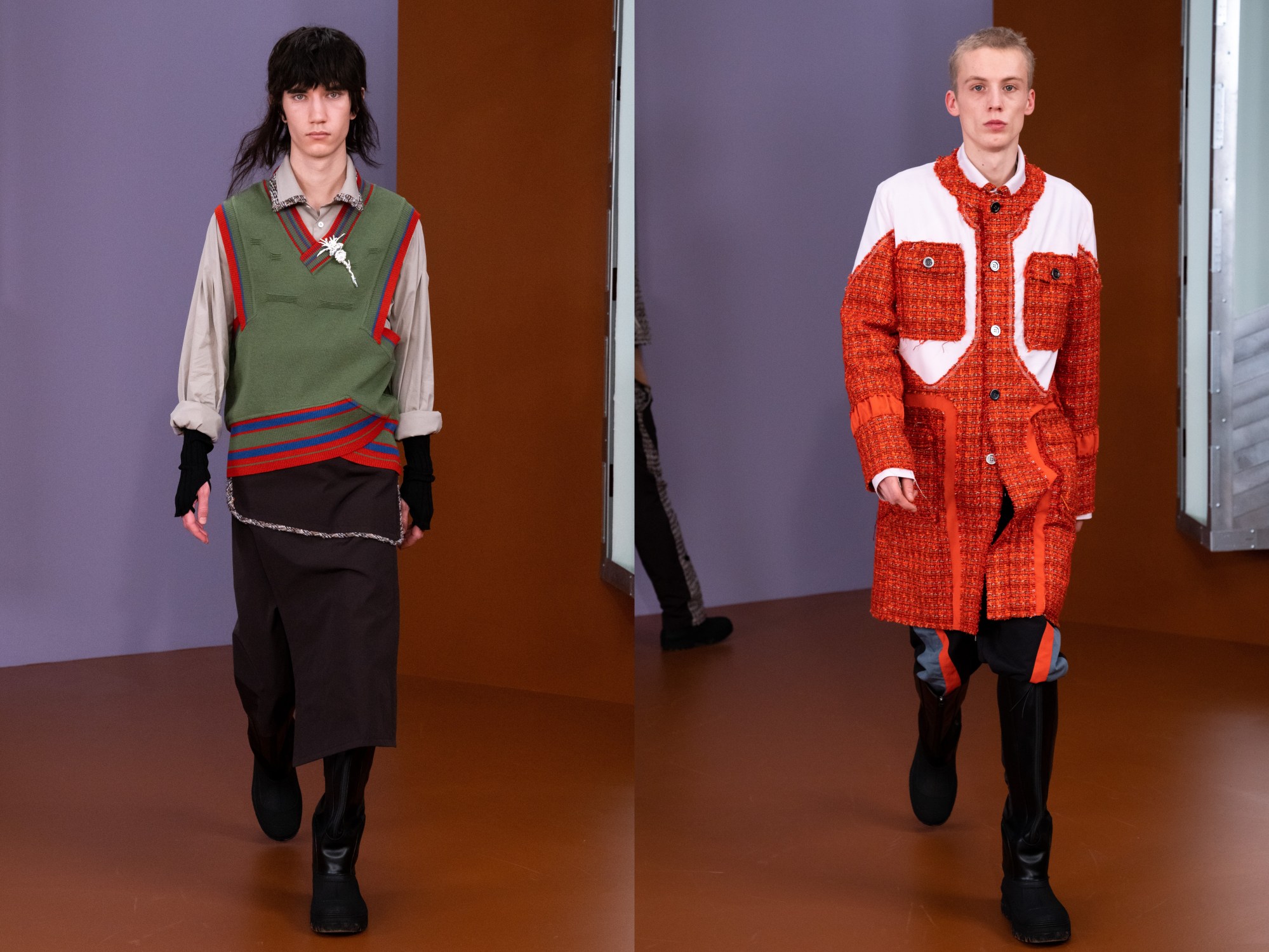“It’s always about travelling, looking at new things, and slowly building layers that eventually become clothes,” Kiko Kostadinov says. Of course, when he first began work on his eponymous fashion label’s AW21 menswear collection, physical travel was long since off the cards. That did not, however, stop him from embarking on adventures of the mind. While the rest of us sated our lockdown wanderlust by watching Emily conquer Paris, Kiko ventured to rather more cerebral pastures, binge-watching lectures by the late cultural theorist Mark Fisher on YouTube and reading left-field 70s sci-fi.
“Mark spoke a lot about a writer called Christopher Priest, who wrote A Dream of Wessex,” says Kiko, a novel that centres on a Dorset castle that houses a portal to a VR-dreamed future, and which, allegedly, served as a key source of inspiration for Christopher Nolan when he wrote Inception. Kiko’s escapist urges also saw him leaf through Honey from a Weed, a document of culinary writer Patience Gray’s rambles around the Mediterranean, foraging weeds and mushrooms with her husband, a sculptor.
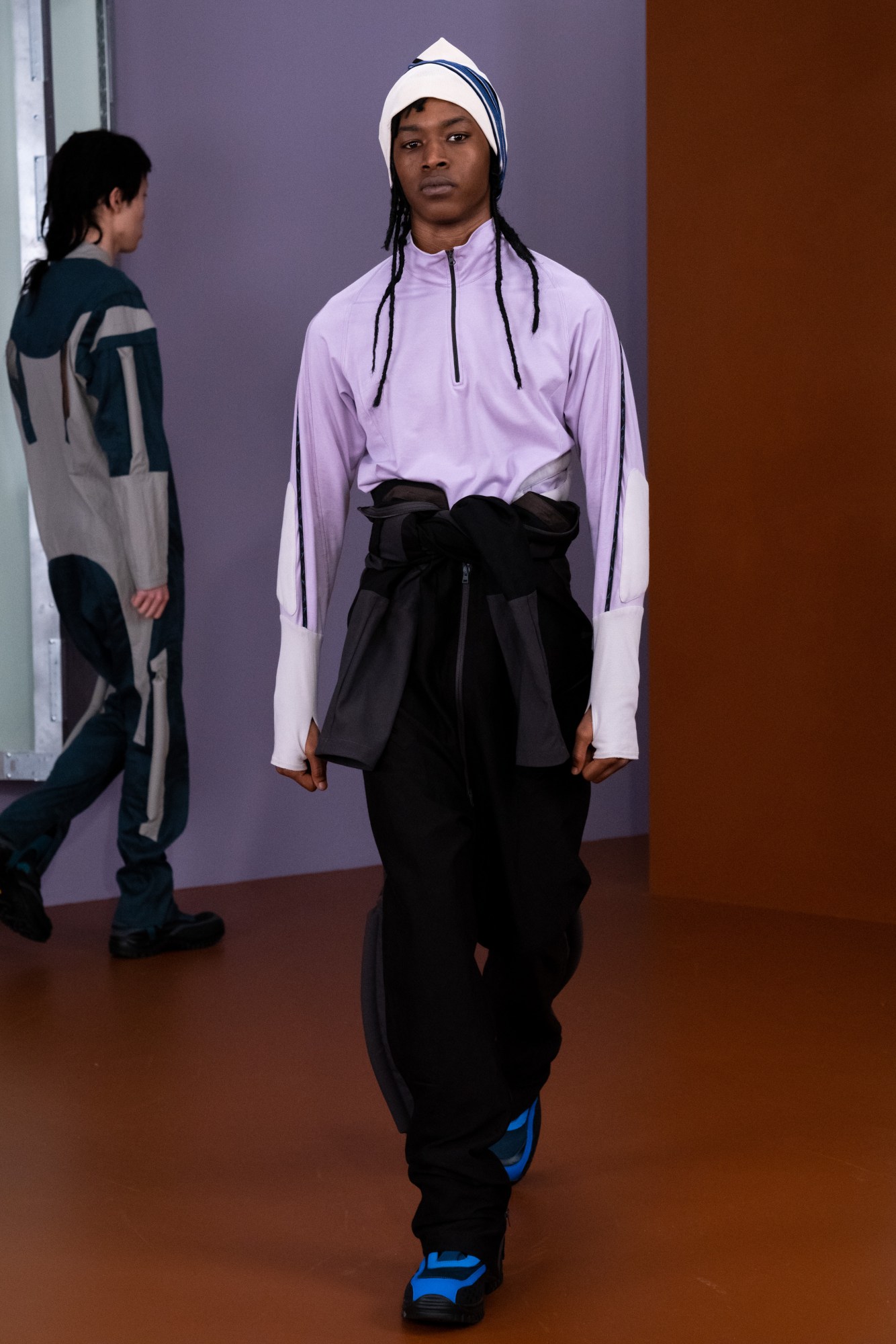
Questions around how reading speculative science-fiction and pastoral documentary writing leads you to a contemporary menswear collection may, understandably, leave you scratching your heads. But it’s perhaps worth noting that unpicking a Kiko Kostadinov collection is a bit like licking a gobstopper: one layer keeps giving way to another, but the effort you put in to get to the heart of the matter is, ultimately, well-rewarded.
This season, Kiko sought to exploit the contrasts and disparities between these two polar themes, musing on the notion that constant oscillation between unattainable ideals is the defining emotional quality of our times. At one moment, we’re wrapped up in the ascetic fantasy of retreating “to a cottage at the end of the world, just being there in your garden, growing your vegetables, seeing no one and being removed from it all,” Kiko says, only to want to throw ourselves into a hyperconnected lifestyle of gallery openings, dinners and parties the next.
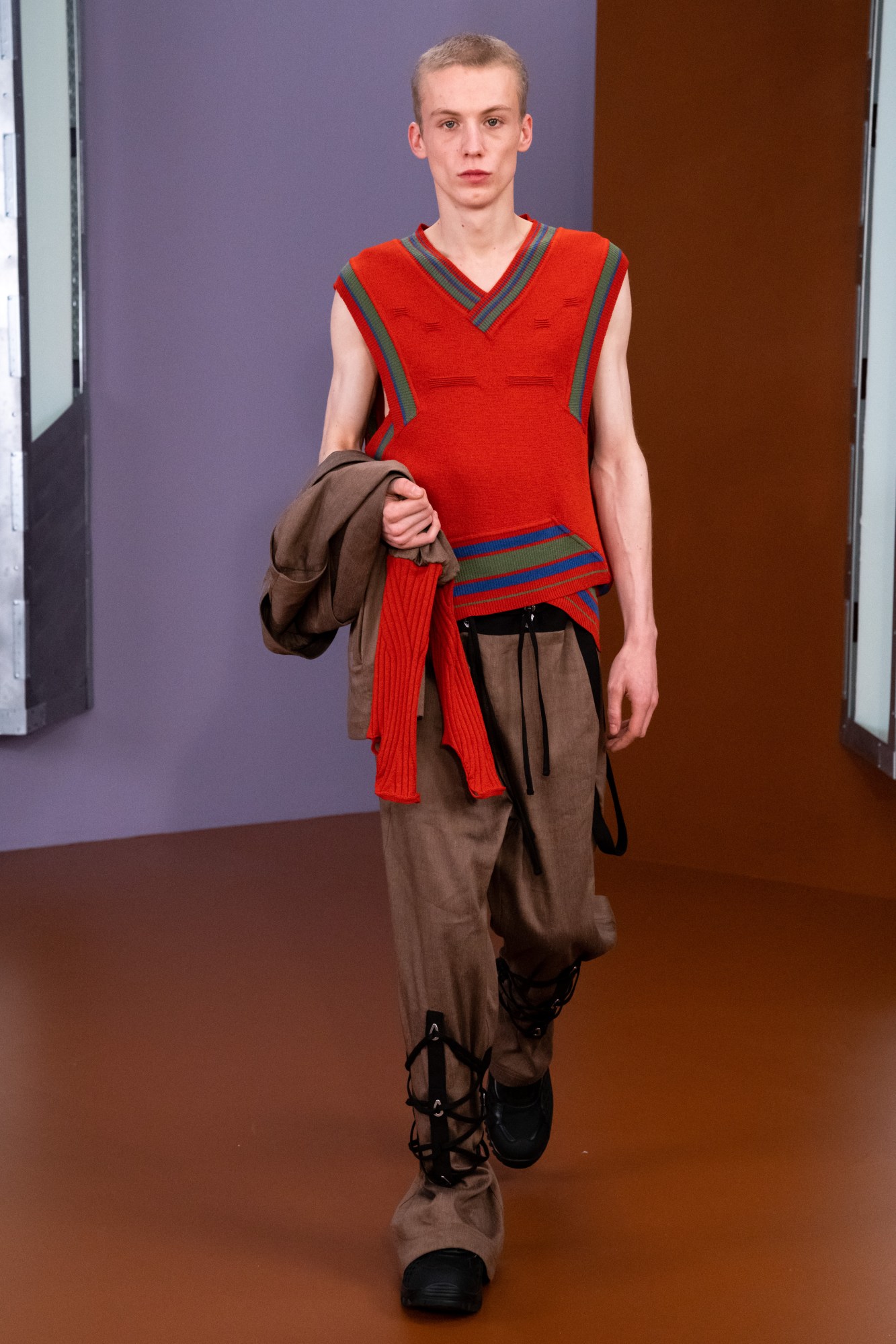
On the surface, this a collection that offers something for all and any of those occasions: there’s a ruddy-cheeked outdoors-y-ness to hearty knit vests in the hues of the autumnal English countryside, raw wool trousers and weather-hardy nylon coats. Blazers with spliced ribbed forearm sleeves and geometrically-panelled marbled tweed jackets suggest a vintage, dressy glamour. Artfully cobbling these motifs together, though, the exercise at hand becomes less about playing opposites off against one another, and more about creating fashion that equates to an aesthetic glitch.
It exemplifies a way of dressing that will feel familiar to many, an incidental approach to putting garments together apt for times in which rules around what should be worn when and where no longer apply. These days, it makes as much sense to wear a slashed peacoat over a silky printed jumpsuit around the house as it does to nip out to the shops. And while wearing a bespoke suit jacket over the top of a pair of sweatpants you’ve worn all weekend may have felt a bit eccentric two years ago, when else are you going to wear it now?
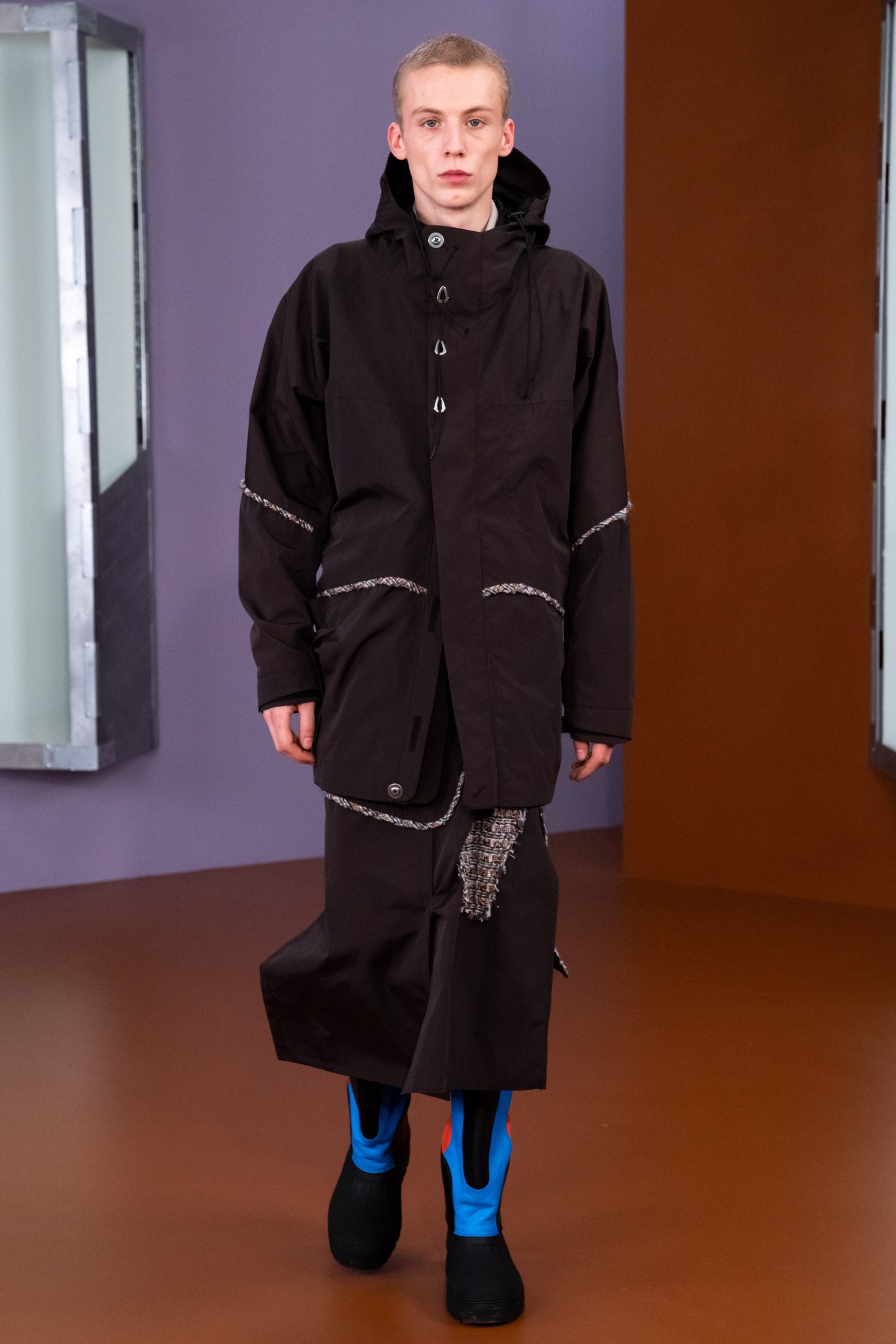
This sense of randomised playfulness makes itself is felt strongly in the clothes, but it’s in Kiko’s chosen means of presentation where it really comes into itself. This is, for all intents and purposes, a 30-look collection — head over to the Kiko Kostadinov website and you’ll see another 60 more. At the click of a button, three randomly selected silhouettes are presented in “a Priest-inspired purgatory, where suspended vertical sleeping pods await bodies in a clinical construct of chromatic planed surfaces”, offering a near-infinite combination of potential insights and angles into the label’s latest body of work. It’s an approach that feels a little at odds with the general tendency we’ve seen this season towards showing comparatively condensed collections, though “the point wasn’t just to have lots of looks — it was about opening things up, offering new perspectives” on the collection. “It’s a bit like peeling back the layers of an onion,” Kiko says.
